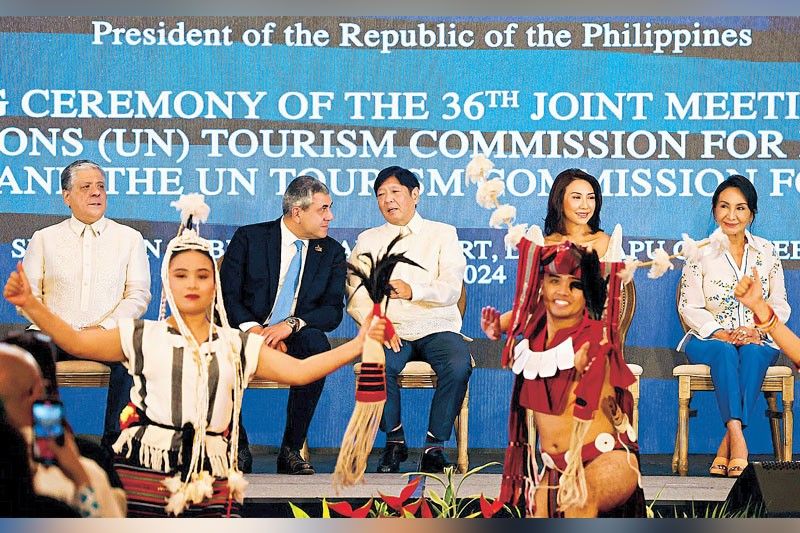President Marcos lauds green tourism

LAPU-LAPU CITY, Cebu , Philippines — The greener you are, the better tourism can be.
President Marcos declared this yesterday at the opening ceremony of the 36th Joint Meeting of the United Nations Tourism Commission for East Asia and the Pacific and the UN Tourism Commission for South Asia.
In a speech, he said he was “delighted to know” that education and product development through “green transformation in tourism” would be discussed during their meetings.
“Indeed, education is always going to make any industry better and certainly tourism is no different. We need to raise the standards and practices in this crucial sector by investing in education, training and skills upgrading of all the personnel who are working in this industry,” he said.
Marcos also called on tourism agencies across the Asia-Pacific region to promote “green tourism” through employing sustainable practices.
“We must go green in the transformation of our tourism products and services as a solution to address climate change, resource preservation and long-term industry sustainability,” he said.
He added, “If we are to talk about tourism, I am of the belief that the greener you are, the better the tourism experience will be.”
“For what good will any tourism effort be if it ends up destroying the local culture and ecology?” he also said.
From June 26 to 28, around 600 delegates of the UN Tourism forum coming from 43 countries were brought to Cebu’s attractions such as Camotes Islands, the heritage towns of Dalaguete and Argao and Bojo River in the town of Aloguinsan that was awarded as one of UN Tourism’s “best tourism villages.”
They also partook of meals that featured Cebu’s well-known dishes and delicacies such as the lechon of Carcar City, torta bread of Argao and seafood dishes from Dalaguete.
Cebu also hosted the UN Tourism’s First Gastronomy Tourism Forum for Asia and the Pacific, wherein the delegates discussed ways on preserving food – particularly local dishes and delicacies, as well as the culture and history behind them – as an important aspect of tourism promotion. — Ric Obedencio
- Latest
- Trending































